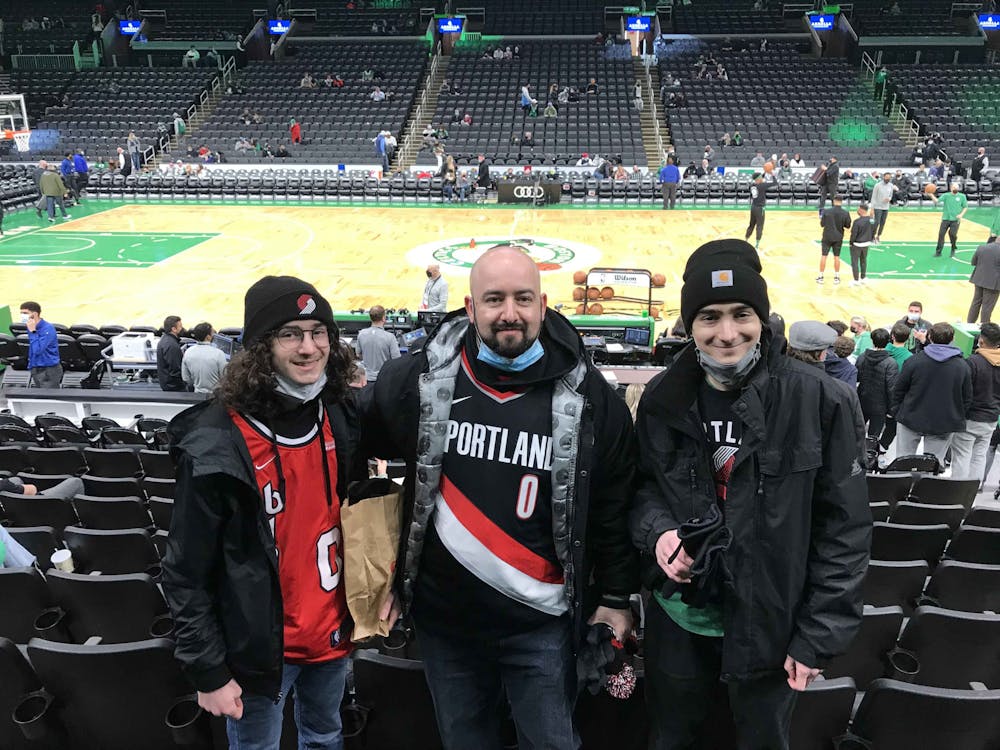Since I got “Rip City” — a tagline for the Portland Trailblazers — tattooed on my right wrist, people have had many reactions.
The most simple and common response of “Um…why?” is understandable, but it often sounds like mockery. I feel critiqued for why I dedicate myself to some team of millionaires who have no idea I exist.
At their base value, sports may just be people playing exercise games on a court or field, but they’re deeper than that. They’re not mindless entertainment for vapid jocks, they’re a series of dramatic tales that give fans a sense of belonging and belief amid the ills of life.
While I am a die-hard fan of the Trailblazers and I would never deny that, fandom alone would be a silly reason to get ink permanently marked on my skin. Sports aren’t interesting because of what athletes do, it’s all about the story. “Rip City” is part of mine.
“Rip City” to me means home. Not only does it represent Portland and the area I’ve lived my entire life, but it is also a code of kinship. When I meet someone and they understand this codeword, I know I have found my people.
I’ve had classes with professors who include how they love the Blazers in their introductions, and every time it builds a foundation of trust between us. We can share where we each witnessed Damian Lillard’s series-ending shot against the Oklahoma City Thunder in the 2019 NBA Playoffs, and how we felt amid his departure and return to the franchise.
All of a sudden a stranger can feel more like family because they remind me of my dad and brother — the Blazers fans I’ve known my whole life.
I’ve been without consciousness, learned how to walk, how to drive, gained and lost friends, snaked between the highs and lows of life and faced the sobering reality of having to grow as a person. Basketball has been in the background through every stage.
When I watched 5-foot-9-inch Boston Celtics point guard Isaiah Thomas scorch the top defenses in the world for 28.9 points a night — third most in the NBA — while being over nine inches shorter than the league average height, I saw an impressive player. But as an 11-year-old point guard, the shortest player on my team, I also saw someone who refused to fear even the most daunting odds.
Even though I eventually decided not to dedicate myself to basketball, Thomas showed me that unlikely does not mean impossible. This is a sentiment that’s motivated me in life, especially in my music career — a dream that is as close to improbable as becoming a professional athlete.
At other times, sports have inspired the entire country.
On Sept. 21, 2001, the Atlanta Braves faced off against the New York Mets in the city’s first sporting event since the World Trade Center attacks 10 days prior. In the eighth inning, Mets catcher Mike Piazza blasted a home run to deep left center field to give the Mets the lead and ecstatic screams of over 41,000 fans reverberated through Shea Stadium.
Eventually winning the game, Piazza’s homer provided New Yorkers – and Americans at large – with something to cheer for in that dark time.
Sometimes all we need is a reason to have hope, and sports can provide that reason time and time again.
Kaeden Souki is the Sports Editor for The Beacon. He can be reached at souki28@up.edu.
Have something to say about this? We’re dedicated to publishing a wide variety of viewpoints, and we’d like to hear from you. Voice your opinion in The Beacon.








